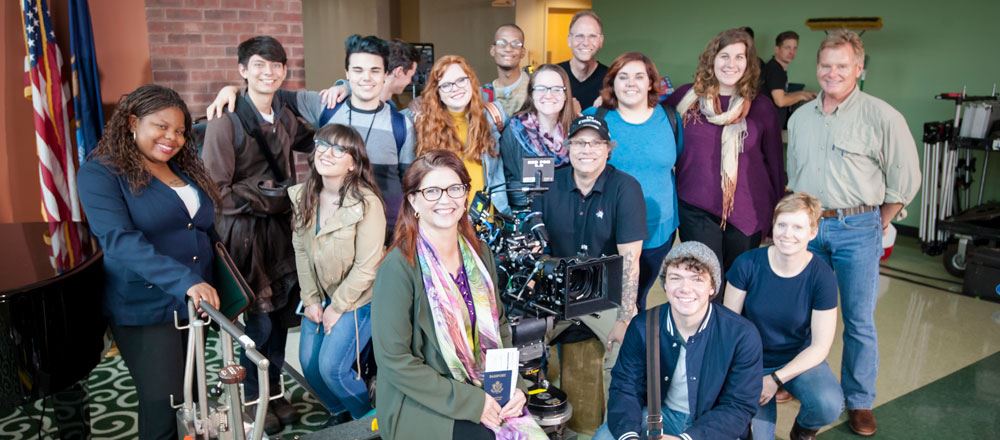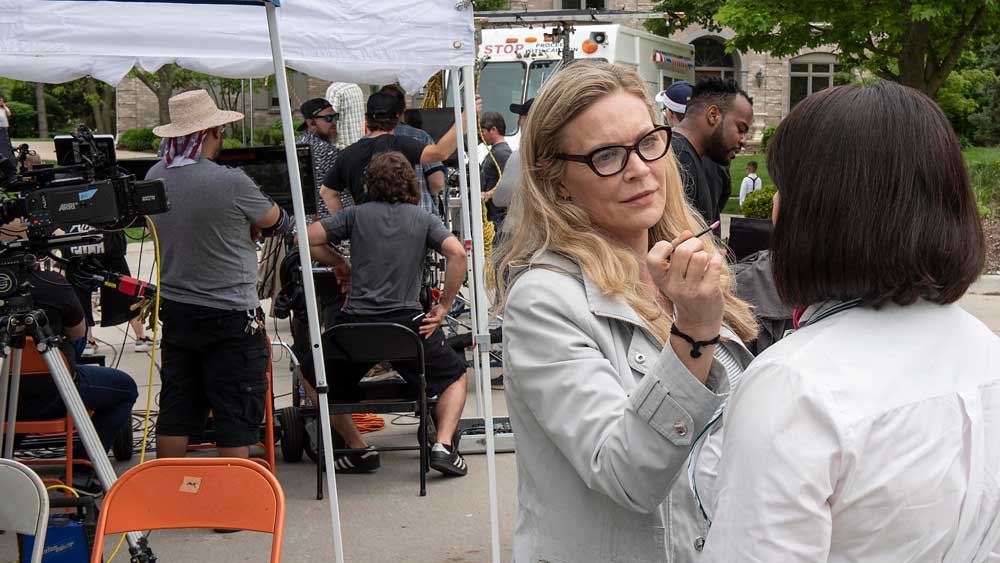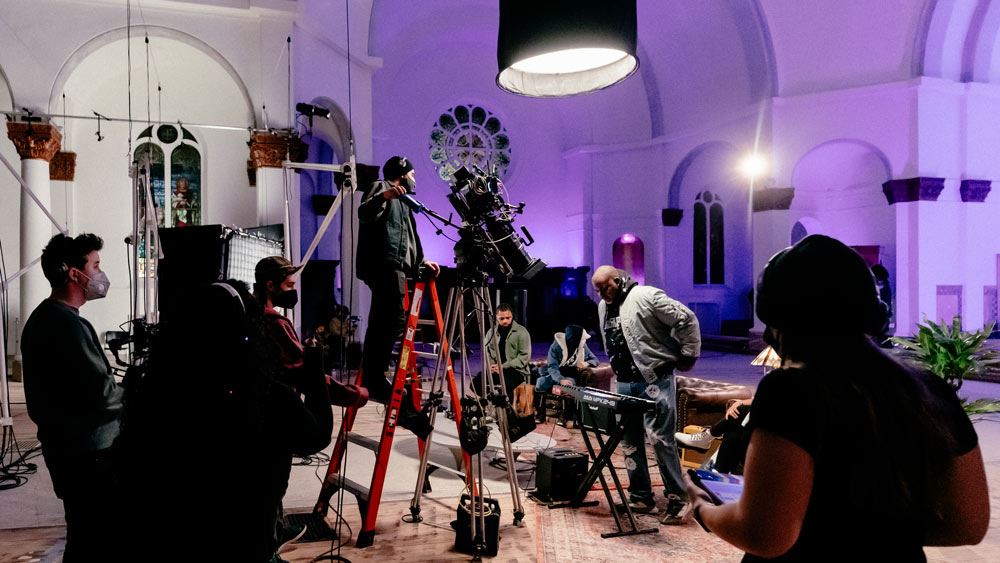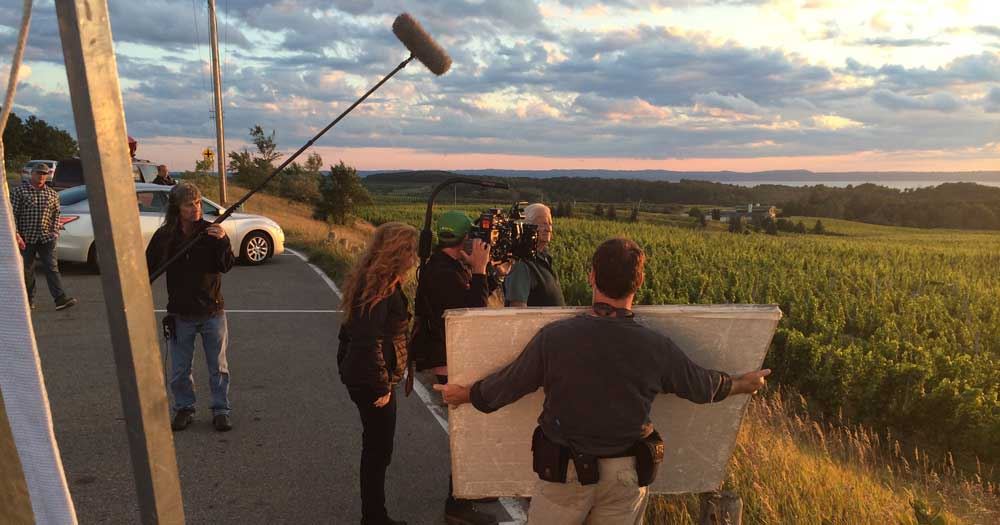
The Michigan Film Industry Association (MiFIA) is a nonprofit industry association representing Michigan's film, television, and media industry. We're a membership organization with an all-volunteer board giving a voice to the hard-working women, men, and companies that create film, television, commercials, streaming content, and other media in Michigan.
We provide grassroots advocacy with a mission to create a pro-jobs, pro-economy multimedia incentive program for Michigan.
A multimedia incentive will allow our Michigan to compete with the 40 other states and territories with incentives. A viable and sustainable multimedia incentive is critical to attracting outside investment that creates and sustains good-paying jobs and a robust film, TV, corporate video, and commercial advertising production community.
 Cast & Crew on a TV Commercial Set in Ypsilanti
Cast & Crew on a TV Commercial Set in Ypsilanti
 Cast & Crew on an Industrial Set in Metro Detroit
Cast & Crew on an Industrial Set in Metro Detroit
Why Michigan Needs the Multimedia Jobs Act
39 states and Puerto Rico, U.S. Virgin Islands Over 40 states have film incentive programs. Of these, 25 states and Puerto Rico have advertising commercials as part of their programs. Illinois, Minnesota, Ohio & Pennsylvania all have programs that include advertising commercials. Michigan is not on an even playing field with the nation, let alone with its neighboring states. Our state misses out on opportunities to host film, TV, advertising, and corporate video projects. Some of the competition also comes from overseas where marketers are finding financial benefits through lower production costs. Newly introduced legislation in Michigan has the potential to elevate our state as a leader in multimedia production and not stand idly by while its robust production industry loses out to more competitive states. MiFIA has consulted with professionals who’ve helped craft other states' incentive legislation. The Multimedia Jobs Act was built from the ground up and has been scrutinized for the successes and failures of other states’ programs. |
Why the Multimedia Jobs Act is Relevant for MichiganHistorically, Michigan has had a robust commercial and corporate industrial production market. The current trend in advertising has shifted much of its focus away from broadcast to content marketing, such as web video production. Including the corporate industrial and advertising components ensure that much of that business will continue to grow and remain in the state. Marketers often require of their agencies that a certain percentage of their commercial production be done in those states offering incentives. Commercial production helps create infrastructure. It builds the labor force and brick-and-mortar businesses to build a thriving production community. The production industry in Michigan has a fairly robust infrastructure that already exists. These incentives will only add to the strength of our base of resources. Editorial facilities, stages, and prop houses will grow. An incentive also impacts other industries that directly support the production industry: carpenters, catering, location rentals, hair, makeup, hotels, and restaurants, to name a few. The Multimedia Jobs Act Has Strong Bipartisan SupportLegislators are beginning to understand the urgent need for creative solutions to our economic predicament and see the opportunity with a multimedia incentive program. Other states, including neighboring states, have already reinstated film incentives or increased their offerings. Demand for production is high and growing, with marketers, TV, film, and streaming services looking for content. Michigan has a budget surplus due to suspending programs and reduced spending during the COVID pandemic. Federal funding is also heading our way to boost the economy. A multimedia incentive is very timely as it will undoubtedly boost jobs and stimulate economic activity. A pending $8.5 billion federal government grant for Michigan will boost jobs and economic activity with the state. Now is the time to act!
|


 Cast & Crew on a Film Set in Southeast Michigan
Cast & Crew on a Film Set in Southeast Michigan Cast & Crew on a TV Commercial Set in Traverse City
Cast & Crew on a TV Commercial Set in Traverse City